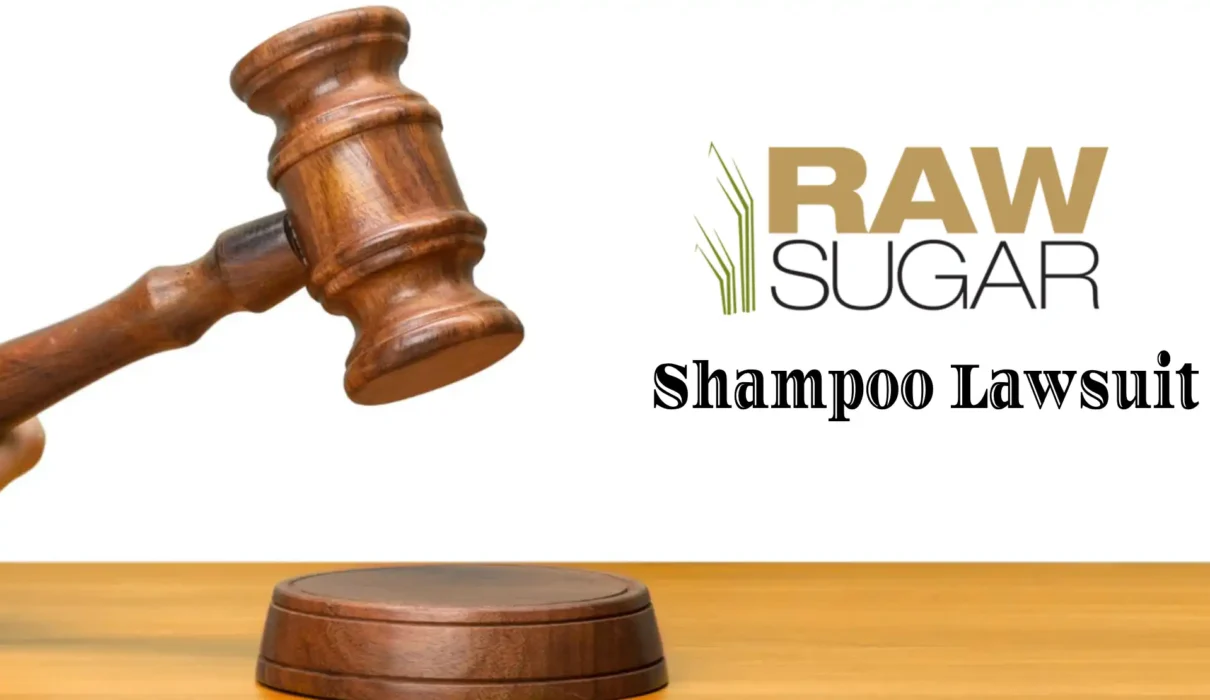Natural and eco-friendly products have become ever more common in the cosmetics industry and consumers are consistently expecting the brands to be honest and transparent. One such brand that adheres to the do-no-harm principle is Raw sugar. The brand says that all of its products are natural and clean. But the company has found itself involved in a major controversy after a Raw sugar shampoo lawsuit. This blog post gives you detailed information about Raw sugar shampoo, its lawsuit and allegations.
Raw Sugar Shampoo
Due to its all-natural ingredients and potential health benefits, Raw sugar shampoo has become a popular hair care product. This shampoo is made of unrefined sugar and assures to provide hair a gentle cleansing with essential nutrients. People who are looking for organic and eco-friendly hair care products Raw sugar shampoo might be helpful.
Raw Sugar Shampoo Lawsuit
The claims of consumers being deceived about the nature of their products are the core allegations of the Raw Sugar Shampoo lawsuit. Despite the company trying to market its shampoos as natural and plant-based, consumers claim that the products include potentially harmful synthetic chemicals.
The Raw Sugar Shampoo lawsuit actually relies on the contradiction between the claims made in the advertisements and the actual ingredients in the product.
Claims pertaining to civil violations of several customer protection laws are represented in the Raw Sugar Shampoo lawsuit. The laws aim to protect consumers from misleading or incorrect advertisements. The plaintiffs further argue that they were misled in believing that they were utilizing truly natural products by Raw Sugar’s advertisements.
Allegations Against Raw Sugar Shampoo
The use of synthetic ingredients in Raw Sugar Shampoo goes completely against the brand’s marketing, which is one of the primary issues that led to the Raw Sugar Shampoo Lawsuit.
Plaintiffs in the Raw Sugar Shampoo lawsuit claim that the shampoo formulations are very far from the “plant-powered clean” as promised by the brand. These findings raise the very real possibility that some consumers are purposefully avoiding certain ingredients in the products.
An issue with ingredient labeling has come into focus through the Raw Sugar Shampoo lawsuit. Because most consumers choose natural products over synthetic ones and the alleged ingredient deception led some of these consumers to use products unknowingly against their preferences or values.
Impact on Consumers
The Raw Sugar Shampoo lawsuit has caused consumers to feel concerned and betrayed. The safety and integrity of raw sugar shampoo are currently being questioned by a large number of people who once trusted the company and believed in the product’s natural claims. Adverse reactions have been reported by some people, varying in severity from slight irritation of the scalp to more severe allergic reactions. The lawsuit illustrates exactly how important the cosmetic industry is to be transparent and accurate with its labeling.
Legal Proceedings and Current Status
The Raw Sugar Shampoo lawsuit is still pending. It illustrates the issue with marketing claims in the larger beauty industry. Since then, Raw Sugar has responded to these claims and defended its marketing and product strategies. The company claims that it has always been transparent about its ingredients. During the current legal proceedings, both parties are presenting evidence in support of their respective arguments. The manufacturer and the future marketing of raw sugar shampoo will be greatly impacted by the outcome of this lawsuit.
Future of Raw Sugar Shampoo
The raw sugar shampoo controversy has brought up significant issues regarding product transparency, labeling practices, and consumer trust, regardless of this shampoo lawsuit’s outcome. To guarantee compliance to industry standards and satisfy customer expectations, manufacturers might be forced to examine their formulas, labeling practices, and marketing claims. The raw sugar shampoo lawsuit serves as an appropriate reminder about the importance of accountability and vigilance in the beauty industry.
Conclusion
The Raw Sugar Shampoo lawsuit serves as a warning for both consumers and the beauty industry. Transparency, honesty, and responsibility should become the top priority in product formulation and marketing. As we battle for justice through legal processes, consumers must always be aware of the products they use.
While the Raw Sugar Shampoo lawsuit may have damaged consumer trust, it also offers possibilities for positive change. We are getting closer to a beauty industry that genuinely cares for the health and well-being of consumers by pushing for more precise standards and clear labeling. The most effective means of defense for a consumer against products that contain harmful ingredients or misleading advertisements is to stay informed.
FAQs
Q1. Is Raw sugar shampoo entirely natural?
Ans: The formulations of raw sugar shampoos might differ. It’s important to read the label and look for any ingredients that can be harmful.
Q2. How should I respond to raw sugar shampoo if I have an allergic reaction?
Ans: If using raw sugar shampoo causes any adverse side effects, stop using it immediately and seek advice from a healthcare professional.
Q3. Despite this lawsuit, can I still use raw sugar shampoo?
Ans: It is a personal choice to keep using raw sugar shampoo. It is recommended to carry out thorough research and make your decision based on your individual preferences and concerns.
Q4. Is the lawsuit addressing all raw sugar shampoos?
Ans: Specific allegations made against a particular brand of raw sugar shampoo is the focus of the lawsuit. It is important to Understand the differences between various brands and products.
Q5. Where can I learn more information about the raw sugar shampoo lawsuit?
Ans: For the most recent information regarding the raw sugar shampoo lawsuit, check out reliable news sources or legal experts having experience in the matter.

